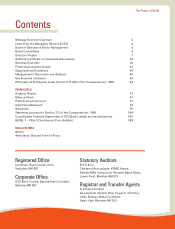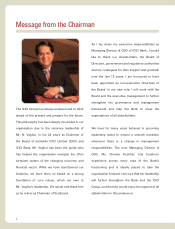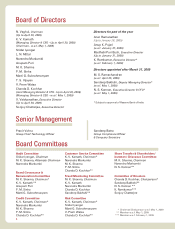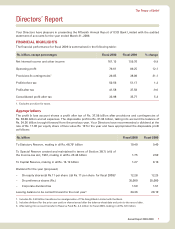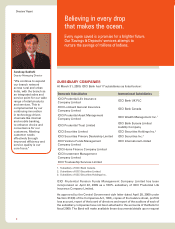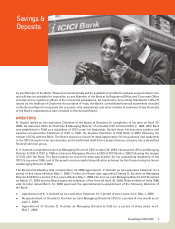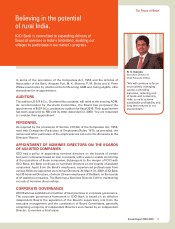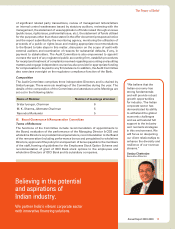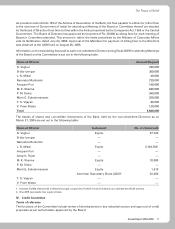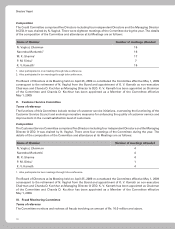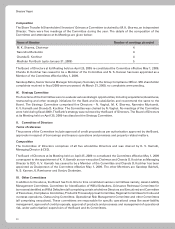ICICI Bank 2009 Annual Report Download - page 13
Download and view the complete annual report
Please find page 13 of the 2009 ICICI Bank annual report below. You can navigate through the pages in the report by either clicking on the pages listed below, or by using the keyword search tool below to find specific information within the annual report.
11Annual Report 2008-2009
Believing in the potential
of rural India.
ICICI Bank is committed to expanding delivery of
financial services in India’s hinterland, enabling our
villages to participate in our nation’s progress.
N. S. Kannan
Executive Director &
Chief Financial Officer
“We will continue to focus
on prudently managing
capital, controlling
expenses, reducing cost
of funds and containing
risks, so as to achieve
sustainable profitability and
long term returns to our
shareholders.”
The Power of Belief
In terms of the provisions of the Companies Act, 1956 and the Articles of
Association of the Bank, Anupam Puri, M. K. Sharma, P. M. Sinha and V. Prem
Watsa would retire by rotation at the forthcoming AGM and, being eligible, offer
themselves for re-appointment.
AUDITORS
The auditors, B S R & Co., Chartered Accountants, will retire at the ensuing AGM.
As recommended by the Audit Committee, the Board has proposed the
appointment of B S R & Co. as statutory auditors for fiscal 2010. Their appointment
has been approved by RBI vide its letter dated April 2, 2009. You are requested
to consider their appointment.
PERSONNEL
As required by the provisions of Section 217(2A) of the Companies Act, 1956,
read with Companies (Particulars of Employees) Rules, 1975, as amended, the
names and other particulars of the employees are set out in the Annexure to the
Directors’ Report.
APPOINTMENT OF NOMINEE DIRECTORS ON THE BOARDS
OF ASSISTED COMPANIES
ICICI had a policy of appointing nominee directors on the boards of certain
borrower companies based on loan covenants, with a view to enable monitoring
of the operations of those companies. Subsequent to the merger of ICICI with
ICICI Bank, the Bank continues to nominate directors on the boards of assisted
companies. Apart from the Bank’s employees, experienced professionals from
various fields are appointed as nominee Directors. At March 31, 2009, ICICI Bank
had 30 nominee Directors, of whom 23 were employees of the Bank, on the boards
of 41 assisted companies. The Bank has a Nominee Director Cell for maintaining
records of nominee directorships.
CORPORATE GOVERNANCE
ICICI Bank has established a tradition of best practices in corporate governance.
The corporate governance framework in ICICI Bank is based on an effective
independent Board, the separation of the Board’s supervisory role from the
executive management and the constitution of Board Committees, generally
comprising a majority of independent Directors and chaired by an independent
Director, to oversee critical areas.


